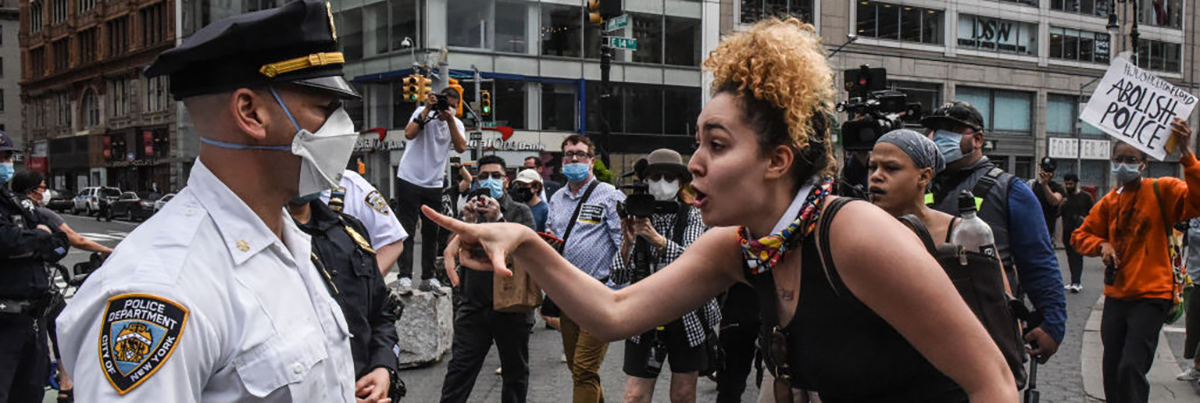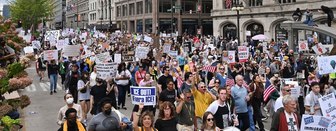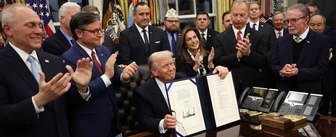America’s first response to the killing of George Floyd by Minneapolis police was clear: shock at the death, approval of the murder charge brought against one officer, and support for peaceful protest. But a major question remains: where do we go from here? The latest Economist/YouGov Poll examines the public’s acceptance (and sometimes rejection) of possible solutions like anti-bias training, changes in police practices, reparations, and other proposals.
Americans today are more optimistic (48%) than pessimistic (30%) about the political protests over George Floyd’s death leading to reform – this time. About half of black Americans (52%) are optimistic that the protests will lead to an improvement in the way police officers treat black Americans.
But, there are stumbling blocks for many on the road to change. And some proposals lack majority support from the public.
- By 45 percent to 34 percent, the public sees Confederate statues as a sign of Southern pride, not of racism. They divide on whether the statues in Alabama and Virginia should be removed (41% vs 39%).
- Although a majority of black Americans support reparations – financial payments to the descendants of slaves, the public overall disapproves (55% to 23%). The question of a formal government apology for slavery gets mixed reaction: 40 percent (but only a third of white Americans) approve; 40 percent (49% of white Americans) do not.
But George Floyd’s death and the subsequent protests have resulted in some openings for change, as well as a recognition that some change is necessary, and now may be the time. Half the country (47% of white Americans and 74% of black Americans) believes race relations have gotten worse in the last few years since Donald Trump was inaugurated as president. Most (black, white, Democrat, and Republican) now support (56%) the anti-lynching law, first introduced in 1918 and just passed by the House of Representatives last week.
Americans see a broader pattern of police use of force against black Americans, and while they might not support all of the measures suggested for curbing that inequity in the use of force, they do support many, including banning choke holds, devising an early warning system for discovering problematic officers, training police in de-escalation tactics, and the use of body cameras. Support for all these measures is overwhelming.
There is division on banning the use of tear gas and rubber bullets, and clear opposition to cutting funding for police. White Americans oppose cutting funds by four to one, while black Americans are closely divided, 39 percent in favor, 33 percent opposed.
By more than two to one Americans support diversity initiatives in the workplace to train and hire more black Americans. And they also want anti-bias training for a broad group of workers: more than two-thirds want it for the media and government officials. Nearly three in four (73%) favor it for police officers, and a majority support it for the military (58%), which already has anti-bias training.
But many Americans have yet to see the need for anti-bias training for themselves. Just under half (47%) of white Americans think people like themselves need anti-bias training, 42 percent do not. Half (51%) of Republicans don’t see the need for anti-bias training for people like themselves. Most Republicans do see a need for that training for police officers, for the media, and for government officials.
Since George Floyd’s death, just one in three Americans have had a serious conversation with someone of a different race about racial issues, though one in five say they haven’t had one “yet.” Black and white Americans are not much different, suggesting that anti-bias training and changes in police behavior may not be enough. Americans may need to talk with one another from now on, more than they do.
See the toplines and crosstabs from this week’s Economist/YouGov Poll
Related: Most Americans support a ban on police choke holds
Image: Getty











